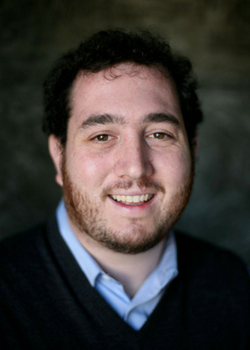In Professor Michael Walzer's now-classic study of the political history of the Passover story, Exodus and Revolution (1985), he concludes with three fundamental teachings that illuminate the ongoing relevance of the narrative to our contemporary lives:
#1: Wherever you are, it's probably Egypt: In Hebrew, the word for Egypt is mitzrayim, meaning "the narrows." The original etymology of the word likely comes from the fact that ancient Egypt was built up only along a narrow strip of the land that traced along the Nile River, with barren, desert wastes on either side. The Rabbis, never satisfied to simply leave things at their plain meaning, interpreted this name to reflect something deeper than geography. Egypt, they say, is the place of personal and spiritual narrowness, of constriction, of oppression. And, they teach, such narrowness is not constrained to any one specific place or time, but exists eternally, both on the personal and on the social level. We each carry a mitzrayim within us- a deeply held struggle that may be invisible to the outside world, but with which we need to contend with each and every day. Similarly, in every society there are terrible ills that can be masked by a shiny exterior, but threaten to corrode the community from within. Part of truly internalizing the Exodus story, teaches Walzer, is building our sensitivity to those daily Egypts, within us and surrounding us, so that we can be part of their healing.
#2: There is a better place, a world more attractive, a Promised Land: Our ancestors were enslaved in Egypt for 430 years. That means that for a slave living just before the Exodus, slavery must have seemed to be a permanent condition. Your parents were slaves, as were their parents, and their parents before them. You had every reason to expect the same for your children and their children. Yet, the Passover story records that no social condition need stay the same forever that a better world is always possible for those who work to build it. No people know this better than the Jewish People, who experienced the horrors of the Shoah and the rebirth of the State of Israel in the span of a single decade. Our Tradition forbids us to believe that the world as it is the world as it must be, and instead teaches us to believe, in the words of Dr. Martin Luther King Jr., that while the moral arc of the universe may be long, it ultimately bends toward justice.
#3: The only way to the Promised Land is through the wilderness. There is no way to get there except by joining together and marching: Since I first encountered this text, on an American Jewish World Service trip, I have understood this final teaching to reflect the fundamental job description of being a member of the Jewish community. We are, and always have been, each other's marching partners toward redemption. Nobody can get there alone, but we don't have to. We have a community that stretches across the world of people who have been deeply shaped by the story of the Exodus. People who understand that Egypt—that place of oppression and struggle is always present, but so too is the possibility of redemption. People who are willing to take our hand and walk with us toward a world we yearn to see. That is what we are called to do for each other. That is who we are. And, by returning each year to the Seder table, we recommit ourselves to that great partnership, and set out once again on the journey out of Egypt, toward a Promised Land.
Shabbat shalom and Hag Sameach!

